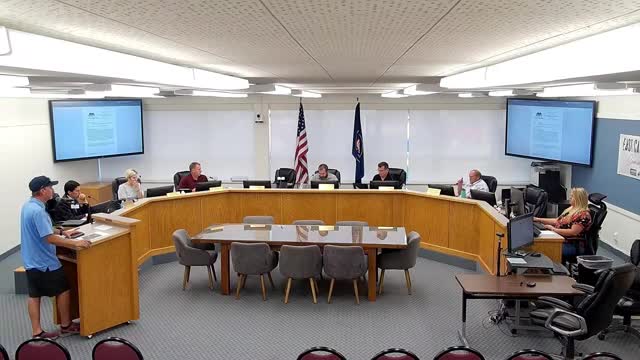Planning Commission Approves New Townhomes Amid Density Debate
August 21, 2024 | Morgan County Planning Commission, Morgan County Boards and Commissions, Morgan County, Utah
This article was created by AI summarizing key points discussed. AI makes mistakes, so for full details and context, please refer to the video of the full meeting. Please report any errors so we can fix them. Report an error »

In a recent government meeting, discussions centered around a planning commission's approval of a proposal to increase residential density in a local development. The commission voted unanimously, 5-0, to recommend the addition of three single-family dwelling units, raising the total to 25. However, the approval was conditional, emphasizing that any further increase—specifically the addition of six townhomes—would require the developer to demonstrate additional amenities or enhancements beyond the original plan.
The developer's motivation for proposing townhomes, which offer higher density and potentially greater profit, was acknowledged during the meeting. Townhomes are seen as appealing due to their reduced maintenance requirements, catering to a growing demand for such housing options. However, the discussion highlighted concerns about setting a precedent for future developments. Some officials expressed hesitation about allowing deviations from established agreements, fearing it could lead to a pattern where developers continually seek to renegotiate terms.
The meeting underscored the importance of adhering to initial agreements while balancing the need for diverse housing options. Officials agreed that while the developer had made commendable efforts, any decision to grant additional density should be carefully considered to avoid implications for future projects. The consensus leaned towards maintaining the integrity of the original agreement while recognizing the evolving needs of the community.
The developer's motivation for proposing townhomes, which offer higher density and potentially greater profit, was acknowledged during the meeting. Townhomes are seen as appealing due to their reduced maintenance requirements, catering to a growing demand for such housing options. However, the discussion highlighted concerns about setting a precedent for future developments. Some officials expressed hesitation about allowing deviations from established agreements, fearing it could lead to a pattern where developers continually seek to renegotiate terms.
The meeting underscored the importance of adhering to initial agreements while balancing the need for diverse housing options. Officials agreed that while the developer had made commendable efforts, any decision to grant additional density should be carefully considered to avoid implications for future projects. The consensus leaned towards maintaining the integrity of the original agreement while recognizing the evolving needs of the community.
Don't Miss a Word: See the Full Meeting!
Go beyond summaries. Unlock every video, transcript, and key insight with a Founder Membership.
✓
Get instant access to full meeting videos
✓
Search and clip any phrase from complete transcripts
✓
Receive AI-powered summaries & custom alerts
✓
Enjoy lifetime, unrestricted access to government data
30-day money-back guarantee

